Ethan Zhao

Senior Reporter
The Latest
-
China Weighs Yuan-Backed Stablecoins in Bid to Challenge Dollar’s Global Dominance
China is weighing a plan to introduce yuan-backed stablecoins as part of a broader push to internationalize its currency, sources familiar with the matter told Reuters, signaling a major policy shift in Beijing's approach to digital assets. 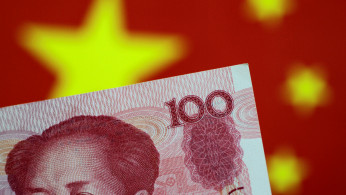
China is weighing a plan to introduce yuan-backed stablecoins as part of a broader push to internationalize its currency, sources familiar with the matter told Reuters, signaling a major policy shift in Beijing's approach to digital assets. -
China Pledges Rare Earth Supply to India as Border Talks Signal Thaw in Relations
China has pledged to address India's needs for rare earth supplies, Indian officials said Tuesday, as the two Asian powers take steps to stabilize relations four years after a deadly border clash in Ladakh left ties badly frayed. 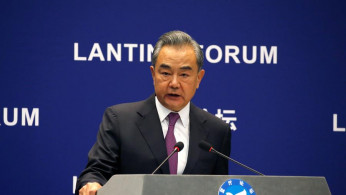
China has pledged to address India's needs for rare earth supplies, Indian officials said Tuesday, as the two Asian powers take steps to stabilize relations four years after a deadly border clash in Ladakh left ties badly frayed. -
Kim Yo Jong Calls Seoul’s Hopes a ‘Pipedream,’ Says North “Have Never Removed” Border Loudspeakers
North Korean leader Kim Jong Un's sister, Kim Yo Jong, on Thursday dismissed South Korean claims that Pyongyang had removed propaganda loudspeakers along the inter-Korean border, calling such beliefs a "pipedream" and accusing Seoul of misleading the public. Her comments come amid renewed tensions ahead of joint U.S.-South Korean military exercises later this month. 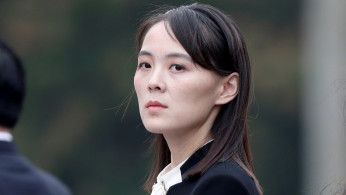
North Korean leader Kim Jong Un's sister, Kim Yo Jong, on Thursday dismissed South Korean claims that Pyongyang had removed propaganda loudspeakers along the inter-Korean border, calling such beliefs a "pipedream" and accusing Seoul of misleading the public. Her comments come amid renewed tensions ahead of joint U.S.-South Korean military exercises later this month. -
South Korea Arrests Former First Lady Kim Keon Hee on Corruption Charges, Both She and Yoon Now in Custody
South Korea's former first lady Kim Keon Hee has been arrested on corruption charges, marking the first time in the nation's history that both a former president and their spouse are in custody simultaneously. The Seoul Central District Court issued the warrant late Tuesday, citing "concerns about evidence destruction," according to Judge Jeong Jae-wook, Yonhap News reported. 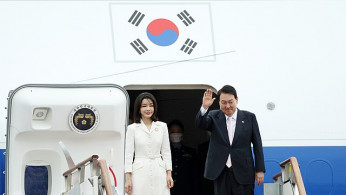
South Korea's former first lady Kim Keon Hee has been arrested on corruption charges, marking the first time in the nation's history that both a former president and their spouse are in custody simultaneously. The Seoul Central District Court issued the warrant late Tuesday, citing "concerns about evidence destruction," according to Judge Jeong Jae-wook, Yonhap News reported. -
China Pressures Firms to Avoid Nvidia H20 Chips After U.S. Lifts Sales Ban
China has urged domestic companies to avoid using Nvidia Corp.'s H20 processors, particularly in government-related projects, creating new hurdles for the U.S. chipmaker just weeks after the Trump administration reversed restrictions on the product. 
China has urged domestic companies to avoid using Nvidia Corp.'s H20 processors, particularly in government-related projects, creating new hurdles for the U.S. chipmaker just weeks after the Trump administration reversed restrictions on the product. -
Trump Extends Pause on Higher China Tariffs by 90 Days
President Donald Trump signed an executive order Monday extending a pause on sharply higher U.S. tariffs on Chinese imports for another 90 days, a White House official said, averting an automatic increase that was set to take effect at midnight. 
President Donald Trump signed an executive order Monday extending a pause on sharply higher U.S. tariffs on Chinese imports for another 90 days, a White House official said, averting an automatic increase that was set to take effect at midnight. -
China Condemns Israel’s Gaza Takeover Plan as UN Warns of ‘Calamity’ and Global Opposition Mounts
China's ambassador to the United Nations on Sunday sharply criticized Israel's plan to take control of Gaza City, warning it would deepen the humanitarian disaster in the enclave and undermine prospects for peace. "There will be no invasion-that is rejected, absolutely rejected," Chinese envoy Fu Cong told the UN Security Council at an emergency meeting in New York. "Gaza belongs to the Palestinian people and is an integral part of the Palestinian territory. Any attempt to alter Gaza's demographic and territorial structure must be firmly resisted." 
China's ambassador to the United Nations on Sunday sharply criticized Israel's plan to take control of Gaza City, warning it would deepen the humanitarian disaster in the enclave and undermine prospects for peace. "There will be no invasion-that is rejected, absolutely rejected," Chinese envoy Fu Cong told the UN Security Council at an emergency meeting in New York. "Gaza belongs to the Palestinian people and is an integral part of the Palestinian territory. Any attempt to alter Gaza's demographic and territorial structure must be firmly resisted." -
South Korea Seeks Arrest of Ex-First Lady Kim Keon Hee in Expanding Corruption Probe
South Korean prosecutors on Thursday filed a request for a detention warrant against former first lady Kim Keon Hee on charges including bribery, stock manipulation, and illegal political influence. The move escalates a series of special investigations targeting both Kim and her husband, ousted President Yoon Suk Yeol, who was impeached in April following a failed imposition of martial law. 
South Korean prosecutors on Thursday filed a request for a detention warrant against former first lady Kim Keon Hee on charges including bribery, stock manipulation, and illegal political influence. The move escalates a series of special investigations targeting both Kim and her husband, ousted President Yoon Suk Yeol, who was impeached in April following a failed imposition of martial law. -
Japan Marks 80 Years Since Hiroshima Bombing as Survivors Warn of Rising Nuclear Threats
Japan on Wednesday commemorated the 80th anniversary of the atomic bombing of Hiroshima, with thousands bowing their heads at 8:15 a.m., the exact time a U.S. bomber dropped the uranium bomb "Little Boy" on the city, killing approximately 78,000 people instantly and tens of thousands more in the following months. The ceremony, held at Hiroshima Peace Memorial Park, drew representatives from 120 countries, including nuclear powers such as the United States and Israel. 
Japan on Wednesday commemorated the 80th anniversary of the atomic bombing of Hiroshima, with thousands bowing their heads at 8:15 a.m., the exact time a U.S. bomber dropped the uranium bomb "Little Boy" on the city, killing approximately 78,000 people instantly and tens of thousands more in the following months. The ceremony, held at Hiroshima Peace Memorial Park, drew representatives from 120 countries, including nuclear powers such as the United States and Israel. -
China Reports Over 7,700 Chikungunya Cases as Virus Spreads Across Guangdong Province
Health officials in China have reported over 7,700 confirmed cases of chikungunya virus across the southern province of Guangdong, with nearly 3,000 cases registered in the past week alone. The mosquito-borne illness, rarely seen in mainland China, is spreading rapidly, prompting public health responses that include fines, quarantines, and aerial mosquito control operations. 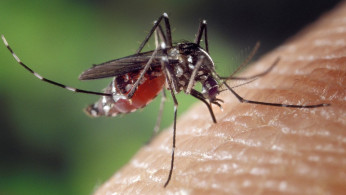
Health officials in China have reported over 7,700 confirmed cases of chikungunya virus across the southern province of Guangdong, with nearly 3,000 cases registered in the past week alone. The mosquito-borne illness, rarely seen in mainland China, is spreading rapidly, prompting public health responses that include fines, quarantines, and aerial mosquito control operations.